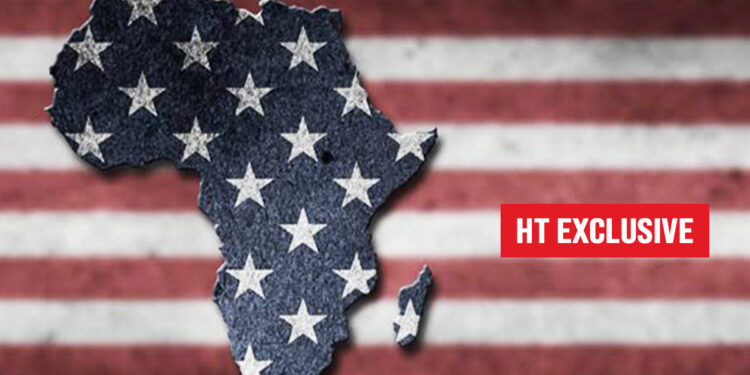By John Ikani
As the 2025 U.S. presidential election nears, Africa is watching closely, waiting to see if Washington’s policies toward the continent will bring real change or continue the status quo.
Whether it’s Vice President Harris or a returning Donald Trump administration, the next president’s stance on trade, security, and climate could redefine U.S.-Africa relations and potentially tilt Africa’s alliances.
Here’s how.
Trade: Will AGOA Finally Deliver?
For years, African leaders have hoped the Africa Growth and Opportunity Act (AGOA) would live up to its promise of “trade, not aid.” Yet, 80% of AGOA’s benefits still go to just five countries, while many others see little impact. With AGOA up for renewal in 2025, both African nations and U.S. policymakers must consider if the program will ever serve a broader group.
Harris might push for eligibility based on strict governance standards, while Trump would likely streamline access. Yet for AGOA to genuinely lift more African economies, the U.S. must look beyond political checklists and consider what African leaders are asking for: access and opportunity.
Ukraine: When Conflict Abroad Hurts Africa at Home
The Ukraine war has hit Africa hard, pushing up food and fuel costs and adding stress to already fragile economies. U.S.-led sanctions on Russia, while intended to pressure Moscow, have also hurt African countries dependent on Russian commodities. Trump has pledged to end the conflict quickly, while Harris is expected to maintain a firm stance on Ukraine.
Africa, however, has felt the pinch and is signalling its discontent. To regain goodwill and relevance, the next U.S. president will need to understand the impact of foreign policies on African economies—and respect Africa’s need for a balanced stance in global alliances.
Security: Rethinking America’s Role in Africa
In regions like the Sahel, security threats from extremist groups have grown, leading to concerns about the U.S. role in supporting African states. Harris favours a blend of military support and local resilience, while Trump’s “America First” policy hints at potential troop cuts. Meanwhile, Russia is expanding its security ties on the continent, filling gaps where the U.S. pulls back.
With the threat landscape shifting, Africa’s leaders want partnerships that respect their sovereignty, not heavy-handed solutions. Whichever administration takes office will need to understand that African nations are willing to work with the U.S., but only on equal footing.
Climate: Balancing Clean Energy with Africa’s Needs
African leaders are wary of being told to adopt strict green standards when many countries still struggle to meet their energy demands. Harris supports renewables, while Trump’s stance on fossil fuels might resonate more with African states seeking quicker industrialization. But either administration should recognize that Africa’s path to economic growth must include a mix of energy options.
What African leaders are hoping for is an approach that respects their need to develop while also encouraging sustainable solutions. A balanced U.S. policy could make all the difference in keeping African economies growing without adding more strain.
Social Policies: Respecting Africa’s Choices
Washington’s stance on social issues like LGBTQ rights has at times created tensions with African countries. A Harris administration would likely uphold these values, while Trump might ease these conditions in the name of sovereignty. Yet as African nations increasingly define their own social priorities, they expect foreign partners to respect their unique perspectives.
For many African countries, the key is partnership without overreach. If the U.S. continues to press its social agenda too hard, it risks straining relationships and giving an edge to other global players who take a less prescriptive approach.
End Note
Africa is looking for a partner that listens, not lectures. With global power dynamics shifting, the U.S. has a chance to refresh its approach and build a lasting partnership that respects Africa’s voice. But to make that happen, America must avoid imposing domestic agendas and recognize Africa’s growing agency on the world stage or risk being outmanoeuvred by rivals who are more attuned to the continent’s aspirations.




































